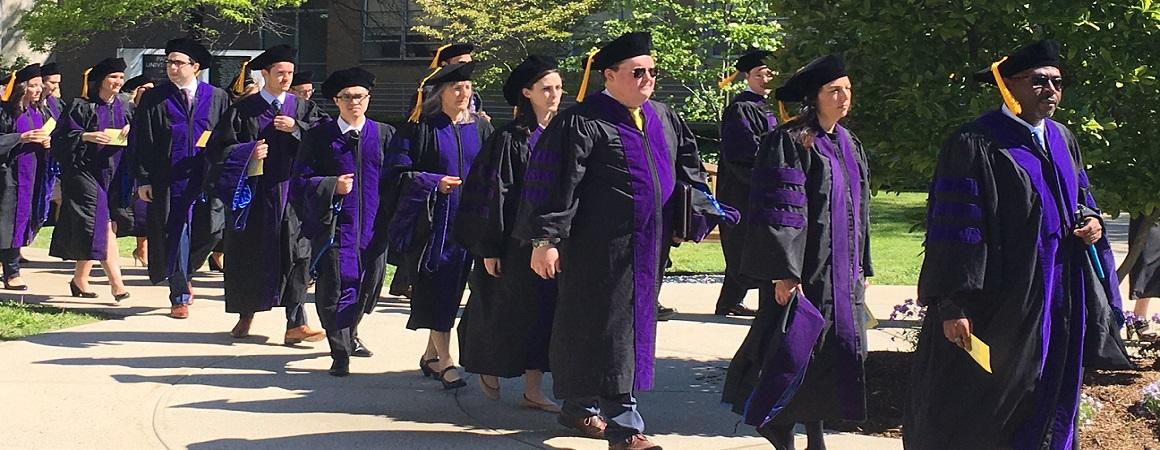Law Schools
10 Best Law Schools in Maine | Cost, Requirements, How to Apply
In a country where there are more than a million lawyers who are actively practicing, it is easier for a lawyer to stand out if they have a strong educational background, which is only achievable if they attended one of the best law schools in the country.
The magnificent state of Maine, which is situated in the northeastern region of the country, is renowned for its forests and rocky coastline.
We are aware that selecting a law school involves a variety of considerations. These variables include the price of the education, the course offerings, the location, the school’s reputation, and several individual concerns.
The best law schools in Maine 2024 and nearby states are discussed in this article, along with the ranking criteria used to determine where they rank. I hope that this information proves to be very helpful in your choice of the best.
Are there Law Schools in Maine?
Maine only has one ABA-accredited law school, the University of Maine School of Law, in contrast to other states that have numerous law schools. Everything you need to know about the law schools in Main and neighboring states will be covered in this post.
Since Law is one of the most well-known professions in the world, many young people, both Americans and people from neighboring states like to enroll in one of the top constitutional universities.
Amazingly, law schools in Maine and elsewhere give their students access to useful and well-liked educational resources that give them the knowledge and skills necessary to practice law professionally.
Read Also: 15 Best Law Schools in Montana | Cost, Requirements, How to Apply
How Long is a Law School in Maine?
There are three years of J.D programs in law schools in Maine and other states in the United States.
The three-year J.D. program at the University of Maine School of Law is built to provide students with a strong foundation in the interpretation of the law and practical lawyering abilities that will help them in any endeavor.
Read Also: 10 Best Law Schools in Delaware | Cost, Requirements, How to Apply
What Are Law Schools in Maine 2024 Ranked For?
Since the institution prides itself on its unwavering dedication to morality and volunteerism, you should be ready to demonstrate that your values align with those of the school in question.
With 49% of the total student body being female, the school has a good gender balance. Furthermore, Maine Law School significantly underperforms the national average regarding student ethnicity, with only a relatively small number of students belonging to underrepresented groups.
How Much Does Law School Cost in Maine?
Comparatively speaking, Maine School of Law’s tuition is less expensive than most other US law schools. However, out-of-state students pay much more than in-state students do for tuition.
In-state full-time tuition is $25,090; out-of-state full-time tuition is $36,580. (out-of-state).
What are the Requirements For Law Schools in Maine 2024?
The requirements for law schools in Maine and other parts of the US have been carefully recommended by the Law School Admission Council and should be strictly adhered to. The requirements are outlined below.
- Candidates for law schools in Maine and other accredited law schools must have earned a bachelor’s degree from an institution that has received academic accreditation.
- Additional testing for law school admission is required (LSAT). On the LSAT, a specialized test, candidates’ capacities for logical reasoning, analytical reasoning, and reading comprehension are evaluated.
- Your transcripts, letters of recommendation, and personal statement are additional requirements for admission.
- Your transcripts should be authentic and demonstrate that you have finished relevant coursework and received high marks.
- The greatest letters of recommendation are written by instructors or employers who can attest to your chances of success in law school.
- Write a personal statement that you can use to introduce yourself to the admissions committee.
What Are the Best Law Schools in Maine 2024?
Despite the small number of law schools in Maine, the one that is ABA-accredited is a solid choice. You must demonstrate your qualifications in academics as well as your social and ethical awareness of your position as a student to be admitted.
Below is the only law school in Main:
- University of Maine Law School
#1. University of Maine Law School
One of the smallest law schools in the nation is Maine Law, which is part of the University of Maine School of Law. The instructors, alumni, and students there take pleasure in their close-knit community.
According to the U.S. News ranking scheme, the institution is a second-tier institution. The tuition at Maine Law is around halfway between the most and least costly law schools among those that U.S. News ranked. It is a university recognized by the American Bar Association (ABA).
The obligatory first-year law courses are part of the Juris Doctor (J.D.) curriculum at the University of Maine School of Law. Most of the electives in the second and third years are obligatory for graduation, however courses in legislative and administrative law and professional responsibility are electives. Additionally, students must satisfactorily complete the Upper-Level Writing Requirement and have six credits in Professional Skills.
The University of Maine School of Law does not charge an application fee for its full-time programs. Full-time in-state tuition is $25,090; full-time out-of-state tuition is $36,580. (out-of-state). The ratio of faculty to students is 6.7:1.
Best Law Schools Close to Maine
Since there are not many law schools in Maine. We highly recommend the law schools closest to Maine for further consideration:
#2. University of New Hampshire Law School
Concord, New Hampshire is home to the University of New Hampshire School of Law, originally Franklin Pierce Law Center.
The NH School of Law is proud of the excellent education it provides its students, which includes the necessary basic legal studies lectures, practical legal clinic experience, and the chance to customize your legal career through concentrations.
The intellectual property program at the NH School of Law is quite prestigious. One of the greatest IP programs in the nation is offered by the NH School of Law. In addition to the classes that students can take as part of the JD program, they also offer an LLM in Intellectual Property. The school also offers an LLM in Commerce & Technology and an LLM in International Criminal Law & Justice, in addition to the IP LLM.
The Franklin Pierce School of Law at the University of New Hampshire does not charge an application fee for its full-time programs. The Franklin Pierce School of Law at the University of New Hampshire does not charge an application fee for its part-time programs. Full-time in-state tuition is $39,310; full-time out-of-state tuition is $46,310; part-time in-state tuition is $25,010; and part-time out-of-state tuition is $28,810. (out-of-state). 6.8:1 is the student-to-instructor ratio.
#3. Harvard University Law School
At Harvard Law School, chances to apply principles learned in the classroom begin at an early age The broadest selection of legal clinics available at any university in the world is available to older students at HLS. Before graduating, all students must put in at least 40 hours of pro bono or volunteer work.
Harvard is a top-ranked law school in the US and is more prestigious than law schools in Maine and nearby states.
HLS has special grading practices; rather than receiving typical letter grades, students are given honors, pass, low pass, or fail designation. The HLS buildings are integrated into the university campus in Harvard Square, a popular hangout for college students in Cambridge, Massachusetts, with eateries, pubs, and stores.
The Harvard Law School’s application cost for its full-time program is $85 per applicant. Full-time tuition is $68,962. The instructor-to-student ratio is 7.1:1.
#4. Boston University Law School
Faculty at the Boston University School of Law educate utilizing the Socratic method, which fosters engaged conversations, and, with a low student-to-faculty ratio, classes and clinic numbers are relatively small. Numerous emphases are available in the BU Law curriculum, including those in transactional practice, litigation, and conflict resolution.
The school is particularly well-regarded for its specialty programs in tax, intellectual property, and health law. A dual degree, such as a J.D./LL.M. in Taxation, a J.D./MBA in Management, or a J.D./M.S. in Mass Communication, can also help students advance their legal education.
At Boston University’s School of Law, the application fee for the full-time program is $85. Full-time tuition is $60,718. The ratio of faculty to students is 6.3:1.
#5. Northeastern University Law School
The long-running Cooperative Legal Education Program at Northeastern University Law School in Boston is one of the ways the school distinguishes itself as an organization.
The law school quarter system alternates between second and third-year students taking classes or completing co-ops at businesses including firms, agencies, and corporations. (Some experiences cost money, and some are overseas.) Four co-ops will have been completed by law students by the time they graduate, and according to Northeastern, around 40% of graduates secure employment from prior co-ops.
There are several opportunities with other departments at Northeastern or at adjacent colleges for students interested in finishing a dual degree.
No application cost exists for the full-time program at Northeastern University’s School of Law. There is no application cost for the part-time program at Northeastern University’s School of Law. Full-time tuition is $56,940, and part-time tuition is $42,703. 8:1 is the student-to-instructor ratio.
#6. New England Law School
The New England School of Law (NESL), based in Boston, has been operating since its founding in 1908. The institution is a part of the Association of American Law Schools and has ABA accreditation.
On-campus accommodation or housing for graduates is not offered by the institution. Also absent are housing services that adhere to the law.
The Western New England University School of Law does not charge an application fee for its full-time programs. There is no application cost for the part-time program at Western New England University’s School of Law. Full-time tuition is $46,440, and part-time tuition is $34,310. 7:1 is the student-to-instructor ratio.
#7. Suffolk University Law School
Boston’s Suffolk University Law School has been in existence since 1906. The institution holds ABA accreditation and has belonged to the Association of American Law Schools for more than 50 years.
The institution does not offer its students any kind of housing assistance.
However, the student-to-instructor ratio is remarkable, and 84% of graduates found employment within the first ten months of graduation.
At Suffolk University’s School of Law, the application fee for the full-time program is $60. There is a $60 application fee for the part-time program at Suffolk University’s School of Law. Full-time tuition is $53,480, and part-time tuition is $40,050. 10:1 is the student-to-instructor ratio.
#8. Boston College Law School
One of the top law schools in Massachusetts is Boston College (B.C.) Law School, which is situated in Newton, Massachusetts. The areas of law that B.C. Law focuses on social justice, public interest, and human rights.
It holds ABA accreditation and belongs to the Association of American Law Schools. Law students at Boston College are in a good position to gain specialized professor attention.
At Boston College’s Law School, the application fee for the full-time program is $75. The Boston College Law School does not charge an application fee for its part-time courses. Full-time tuition is $61,128. The instructor-to-student ratio is 7.1:1. See a list of law schools in Boston you can apply to in 2024.
#9. Vermont University Law School
Today, in addition to several other degrees and dual degrees, the institution provides a Juris Doctor. It offers both a Master of Laws in Food and Agriculture Law and a Master of Laws in Environmental Law. To offer dual degrees at the following institutions, Vermont has additionally partnered with local and international universities.
Most notably, Vermont Law School is renowned for its legal work in environmental law. Since its founding in 1978, the Environmental Law Center has grown to be the largest and most comprehensive environmental program at any law school.
The application fee for the full-time program at Vermont Law School is $60. There is no application cost for the part-time program at Vermont Law School. Full-time tuition is $50,735. The faculty-to-student ratio is 5.2 to 1.
#10. Quinnipiac University Law School
You will be in the middle of one of the highest concentrations of private law firms, corporate headquarters, and financial institutions in the United States when you visit the picturesque, interprofessional campus, which is located in North Haven in the power corridor between New York City and Boston.
There are numerous program choices and legal specializations to consider. Your journey begins here if you’re prepared to represent clients, influence legislation, advocate for individuals who have no voice, aid businesses in succeeding, and see communities thrive.
There is no application cost for the full-time program at Quinnipiac University’s School of Law. There is no application cost for the part-time program at Quinnipiac University’s School of Law. Full-time tuition is $52,740, and part-time tuition is $37,190. 6:1 is the student-to-instructor ratio.
How to Apply For Law Schools in Maine
You have to stick strictly with these steps for your application into law schools in Maine and the US in general.
Step 1
Setting up an LSAC account.
Step 2
Enroll in the LSAT and start preparing.
Step 3
Look into law schools.
Step 4
Get to know the law school recruiters.
Step 5
Obtain all necessary transcripts, including those for your undergraduate and graduate degrees, certifications, and diplomas.
Step 6
Make a thorough personal statement.
Step 7
Obtain a letter of recommendation from a former employer who can verify your ability to manage a job and study, or from a professor at the undergraduate level when you participated in an internship.
Step 8
Make sure law schools can locate you.
Step 9
Apply online.
Frequently Asked Questions
The LSAT and GPA are given equal weight by the admissions committee, but other factors are also taken into consideration. Your grades and grade trends are significant.
Five years are allowed for the validity of your LSAT score.
In the list of the top law schools, the University of Maine is rated 114th (tie). Schools are rated based on how well they perform against a set of generally recognized measures of quality.
In the field of information privacy law, US News ranked the University of Maine School of Law as a Tier two law school. This distinction acknowledges the range and depth of privacy services offered by Maine Law.
Conclusion
The ranking of the top law schools in Maine that accept applicants has come to an end.
There is no doubt in the lack of an abundance of law schools in Maine. However, the list above demonstrates that Maine has a reputable law school.
Applications that are accepted are determined by several criteria, such as LSAT and GPA results as well as personal statements, among others.
To have a deeper grasp of the law school in Maine and closer states, you can read the article once more.
References







Mike
January 27, 2023 at 12:16 am
There is only one law school in Maine. So this list doesn’t make any sense.